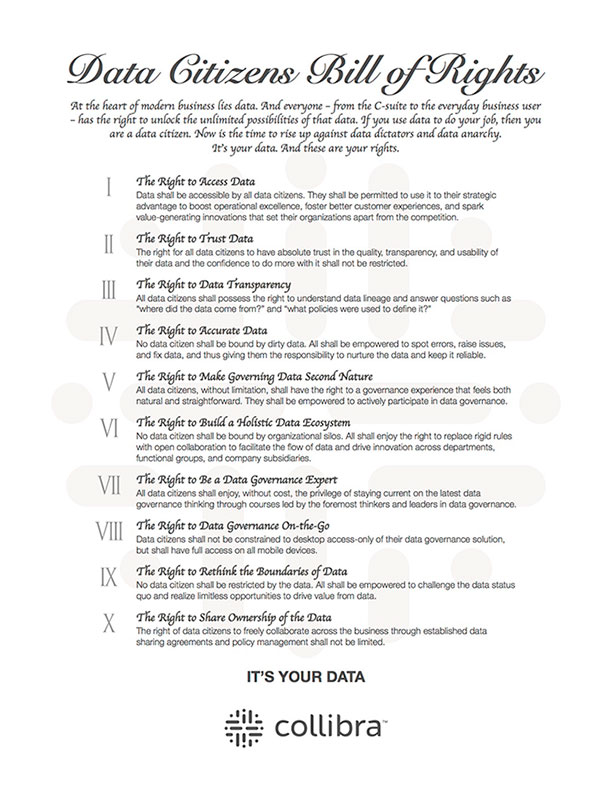Digital transformation is the strategic decision to update business processes to prioritize digital technology, from the inside out. What makes the digital transformation journey of Wolters Kluwer impressive is not the sheer size of the company, or the way they decided to go about their digital transformation, it’s their goal: future-proofing.
We spoke with John Lieto, Director of Data Management for CT Corporation, a Legal Services business and part of Wolters Kluwer’s Governance, Regulatory and Compliance division about their digital transformation and the decision to begin their journey to Data Intelligence. The 127 year old company knows a thing or two about sticking around for the long haul and they’ve proven it time and time again — “you can’t be afraid of new technology; you have to embrace it,” said Lieto. And their digital transformation is grounded in people and the process is nothing short of a full embrace of the digital world we all live in.
CT Corporation challenged Lieto to manage the data portion of the company’s digital transformation. With 19+ years at Wolters Kluwer, Lieto had a strong history of managing system, support and data projects. He knew the importance of data governance and recognized the opportunity to make it a part of their digital transformation strategy.
So, under Lieto’s leadership, CT Corporation began its Data Intelligence journey alongside the larger, company-wide digital transformation. The three most significant questions they needed to answer were:
- How to transform an enterprise with many duplicative systems and data sources?
- How to future-proof their products and their data?
- How to govern the process?
One of the critical design decisions of the digital transformation project was to build an enterprise data layer that would serve as the hub used by all operational and customer facing, analytical and AI applications. And that’s where Collibra entered the picture as their asset management and Data Governance tool. Collibra was able to meet CT Corporation’s need for a platform that enables full metadata functionality and data democracy as well as one that will enable it to easily expand and grow as the company continues to integrate lines of business and replaces back office data sources.
Why did you choose Data Intelligence?
CT Corporation has a ton of data, but has struggled to derive information and insights needed to get closer to customers by addressing their needs and understanding how they wish to interact. While this is becoming a problem many companies are beginning to face, CT Corporation was ready to solve it. Lieto had brought up data governance in the past, but the company wasn’t ready, or the tools weren’t up to the job at that point. Now, with digital transformation as a company-wide objective, they were ready. One of the issues with the other Data Governance/Metadata Management tools that were tested is that CT Corporation would have to host and maintain and support these tools, which costs way too much. With one of the technology goals of the digital transformation being a move to cloud based services, Lieto was able to see the opportunity to implement Collibra. Collibra’s cloud and business driven model was precisely the right tool to help the organization achieve Data Intelligence.
The number one piece of advice Lieto has for Data Citizens seeking to lead their company on a path to Data Intelligence is to “be in line with your stakeholders.” If you’re not, it’s unlikely you’ll succeed in your role. So how does he suggest getting buy-in from stakeholders? “Do good work and have a good reputation; from there, you can make your case because stakeholders will listen to you.”
“The way that Collibra hosts its pilot program is a huge asset because I was able to go into the boardroom, show stakeholders their data in Collibra and what they could accomplish and how the tool enables their digital transformation.” — John Lieto
So you have the buy-in, Now what?
Lieto said the goal of their implementation process was to get the business glossary up and running first. “Luckily our Data Management team has been in place for over two years, all members long tenured with deep system and data knowledge so building the first version of this asset came easily,” Lieto said. “The goal is to give business users some breadcrumbs to get them into the system and using it regularly. Then we can expand our implementation from there.”
The next thing Lieto had on his to-do list was to form a Data Governance Council and Charter. This council comprised of cross functional business and technical leaders across the organization is to meet and make decisions together taking a democratized, non-invasive approach to Data Governance. For example, if marketing is trying to send out a campaign to mid-sized companies and there is a misinterpretation of how this customer set is tagged,’ the campaign won’t be as successful as it could be. “This practice will drive our data maturity to the next level.”
What does success look like?
According to Lieto, a successful outcome for the Data Track of the digital transformation is to create an enterprise data layer that is comprised of data assets that are defined and mapped to source systems and leverage APIs for read/write operations. This will enable the organization to retire/replace systems and add new data sources with minimal rewrite and rework. For Collibra specifically, success means socialization. It is having data assets understood and seeing it in motion. “For example,” Lieto said, “knowing exactly what reports are five stars or two stars; what the data sources are and the lineage of the data will be a difference maker for our sales and service operations.”
Most important advice for others embarking on a Data Intelligence Journey?
You need to make sure that you and your stakeholders know your north star. You need to have real, attainable goals and understand how you’re going to accomplish them. Because without these goals and the support of the people around you, you won’t succeed.
CT Corporation is in the midst of its digital transformation and at the beginning stages of its Data Intelligence journey. Lieto said, he and his team understand that achieving Data Intelligence not only requires a willingness to implement a technical solution, but global participation from all Data Citizens in the organization to ensure its continued success.




